Introduction
Words have long been of interest to me. Their use and mis-use have given me much pleasure.
I used to have a smattering of French but, for the most part, where words and language are concerned I have been limited to English.
Throughout my life certain collections of words – speeches, poems, sayings – have for some reason appealed to me and left me wanting to remember them accurately: not just the right words, but the right words in the right order.
However I have a poor memory for such things and not been good at rote learning. Therefore, to have the true form of such pieces available to me at all times, I developed the habit of carrying, in the back pocket of my trousers, folded pieces of A4 paper on which were written some of these favourite pieces. (The habit was developed before cordless phones and Dr Google provided digital means of supporting perfect recall.)
At any given time the Lines in the Trouser might have included a little Dylan Thomas (I know the text of Under Milk Wood better than any other work, thanks to regular listening over many years to the version featuring Anthony Hopkins and Jonathan Pryce as the Narrators), some Henry Lawson and some Shakespeare. To these would be added selected quotations, thoughts or references I would jot down at meetings attended.
The folds of paper would be transferred to whichever trouser was worn on a particular day, week in week out, until so thumbed and yellowed as to be in danger of falling apart.
In my working life it sometimes fell to me to say something on a rural health policy matter, or on the occasion of a colleague’s birthday or at the staff Christmas party. My trousers therefore became the receptacle not just for fine quotations and the words of others, but also for bits of my own doggerel written for specific purposes. Every now and then there would be a complete clear-out of the pockets and the process of collection would begin again.
I must have got some comfort from knowing that I had ready access to some favourite pieces in their precise form. It is organised form which distinguishes a rabble of words from a poem or a memorable phrase in a speech.
With Lines in the Trouser I reveal what was in my back pockets in the middle of 2016 when I retired from work. There is an arbitrariness about what is included, for the pieces are those that happened to have been selected in the previous few months. I hope you will forgive the juxtaposition of some favourite bits of real poetry with my own doggerel. The juxtaposition was only spatial!
There are 18 pieces, divided randomly into three separate posts for this blogg. Part One includes pieces 1 to 6. In most cases some contextual background has been added to help you know why a particular piece was selected and, in the case of my own verses, the purpose for which each was written. Those among you who find the doggerel excruciating should be alert but not alarmed – for there is plenty more where this came from.
Lines in the Trouser – Index
Part One (this post) Introduction LiT 1 A country childhood LiT 2 11th Conference recommendations LiT 3 Duke Tritton, Gary Shearston LiT 4 A doggerel of a life LiT 5 Do not go gentle, Dylan Thomas LiT 6 Each guest at our table Part Two LiT 7 For Tony Wade LiT 8 Funeral blues, W. H. Auden LiT 9 Heart of our Universe LiT 10 The Mad Monk and The Ranga LiT 11 Christmas Party 2012 LiT 12 from Macbeth, William Shakespeare Part Three LiT 13 None of us is innocent LiT 14 from Richard II, William Shakespeare LiT 15 Two little boys LiT 16 "Some chicken; some neck", Winston Churchill LiT 17 We've had enough of fluoro vests LiT 18 What's in a name?
Lines in the Trouser 1
A country childhood
Context: ‘In the old days’ the NRHA produced a calendar. It was popular and of high quality, and usually contained both images and words. The 2011 calendar had Country kids as its theme and some words were needed for the back page. A country childhood was written in November or December 2010.
A country childhood
Here’s hoping that our children find the outback has delights:
Like the Southern Cross above their head on clear and dark blue nights
Or the view of unbound distances from top a craggy peak
A torrent racing dangerous that last week was a creek.
The sight and sounds of heavy gear hard grabbing at the ground
Or the sweeter voice of magpie that a city’s sounds can drown.
The seething splash of surf-whipped sea, the silver spew’s retreat
Or inland sand that’s miles from shore but close beneath their feet.
The silent sound of distance on a perfect windless day
Or the gale that strips the blossoms – blasts the tender Spring away.
The happy sound of foot on ball – and when it comes to that
The thunk of well-struck tennis ball on home-made cricket bat.
And we trust that local voices also gird these kids around
With the love not just in Nature but in family is found.
And never mind that many choose to cut the strings, depart –
For we know a country childhood always stays within the heart.
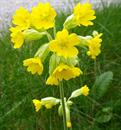
Lines in the Trouser 2
11th Conference recommendations
Context: The 11th National Rural Health Conference was held in Perth in March 2011. Nicola Roxon was Australia’s Health Minister at the time and was able to attend Conference on the last day (Wednesday 16 March) to hear the recommendations only because she had injured her foot and was therefore unable to travel to the World Health Organisation. Jan McLucas, a close friend of the NRHA’s, who was Parliamentary Secretary for Disabilities and Carers, went to WHO in Minister Roxon’s place.
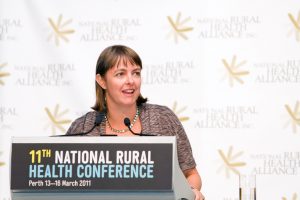
This was not the only occasion on which I resorted to the use of doggerel to comment on rural and remote health policy. Note about the fourth verse: The Government had allocated money for regional cancer centres; health service managers were concerned about specialised staffing for them.
11th Conference recommendations
The Minister’s foot (if you please)
Is sore, quite unlike her knees.
She chose not to go
To the WHO
And it’s Jan who has gone overseas.
The Budget expected was tough
Announced some good rural stuff
You’re welcome today
Though this Conference must say
It still isn’t nearly enough.
The maternity services deal
Gives all of us quite a good feel
It’s not a Rolls-Royce
But should give further choice
And will lessen a problem so real.
We know the mortality graph
Shows cancer in rural’s no laugh
New capital’s great
But is it too late
To ask what we’ll use to get staff?
Though the AMA’s going to be mad
About NPs and PAs (so sad!)
We’ll continue the push
To get staff for the Bush
So our outcomes are not quite as bad.
Though the governance options are three
It’s clear what we all want to see
We are blue in the face
For a regional base
With communities consulted our plea.
These Budget provisions I’m sure
For us have a lot of allure
We trust you won’t mind
If we rurals you find
Are like Oliver: “Can we have more?”
Our people should share in the wealth
Whether at one fell swoop or by stealth
We can work hand-in-hand
Throughout this wide land
To deliver the Bush better health.

Lines in the Trouser 3
Duke Tritton – Gary Shearston
Context: The poem Duke Tritton is from the pen and the singing of Gary Shearston (1939-2013). I heard the author sing it somewhere in the 1970s. He had a lovely style both about himself and with his singing and I admired him very much. As a singer and songwriter Gary Shearston played a significant role in the folk revival of the 1960s. He spent some of his working life overseas, returned to Australia in 1989 and later became a priest in the Anglican Church. People not closely connected with Australia’s folk scene might remember Gary Shearston as the man who had a hit single with ‘I get a kick out of you’.
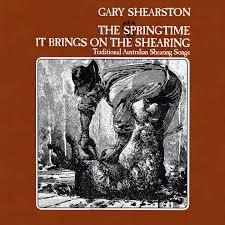
The story of Duke Tritton, and Gary’s admiration for him, are clear from the words of the poem. The last verse refers to Shearing in a bar, one of Tritton’s best know pieces. It describes how a shearer’s tallies become bigger after knock-off time with each beer: “And though I am a truthful man, I find when in a bar, My tallies seem to double but I never call for tar”. The song became a favourite of mine – perhaps the closest I have had to a party piece. One of my friends liked my rendition well enough to request that it be sung at his funeral. We have lost touch.
Duke Tritton
Come gather around you people and listen to my song
I want to tell you of a man, of a time that’s past and gone
Just in case you never knew him he was one of the good old kind
And I’m proud to say as I sing his song he was a friend of mine.
[Refrain] So long old-timer I’m glad that I knew you so well
Duke Tritton was a bushman, a writer and singer too
As a shearer and a drover he often humped his blue
And at timber cutting or building roads he often turned his hand
And high in the Warrumbungle Range the fences he made still stand.
When first he took to the Bush with Dutchy Fisher his mate
They did some busking in country towns a coin or two to make
On Sundays outside an Anglican church they would sing Abide with me
Then race around to the Catholic mob and hit ’em with Ave Marie.
He shore in most of the famous sheds and saw long tallies done
They called him the Duke in a boxing troupe ‘cos most of the time he won
And back in those hungry Thirties when yer tucker meant yer time
He worked as a powder monkey on the Sandy Hollow Line.
There are songs he wrote and songs he sang and stories that he told
Of every trade a man could take up in the days of old
With his blue eyes fairly blazing and gripping his ghostly blades
He taught me more than any man of how this land was made.
But now his time is over and his miles of years gone by**
If there isn’t a union where he’s gone he’s the one who’ll organise
And I’ll bet if those angels are out of tunes or their songs aren’t up to par
It won’t be long before he’ll have them Shearing in a Bar!
**alternatively: And now his time is over and he’s tramped beyond the skies
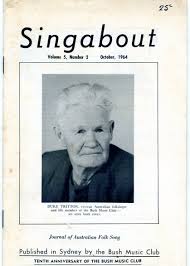
Lines in the Trouser 4
A doggerel of a life: (If I only knew now what I didn’t know then)
Context: Presumably I wrote this for my 70th birthday party. There is a piece elsewhere in this blogg about the Beardy Street house.
A doggerel of a life
For my first ten years I was small and naive –
Feel much the same now though it’s hard to believe.
If-I-only-knew-now what I didn’t know then!
I’d be wise as I should be at threescore and ten.
At school I took Latin and science and such
Left a little bit wiser but not very much
From 10 through to 20 I took on some knowledge
And travelled to Durham to go to the college
Where the sanctuary knocker I touched
I’ll say this just twice then I’ll say it again:
‘Why-ay man I gang noo to threescore and ten’.
Between 20 and 30 I married my wife
We moved to Australia to live a new life.
We went to New England, were never alone
And the Beardy Street house was to be our dream home
While time without kids meant that pleasures were rife.
I’ll tell youse three times – so hear wot I say:
“It’s bonzer to make it to seventy eh!”
From 30 to 40 was the Babies Decade
The results of the plans when Alpha was laid that Alpha had laid
But the trouble it took has long since been repaid
By Tauri and Pella and Parri and Tad
In the care that they’ve given their mum and their dad
And the beautiful memories they’ve made.
I’ll say this more times than just threescore and ten:
‘Good luck to our children again and again’.
From 40 to 50 (we’re in Canberra somehow)
I worked for John Kerin; it was shoulder to plough
The farmers revolted, poured their wheat on the floor
Already with plenty they wanted still more
“What do we want?” the farmers all cried
“Stuffed if we know!” to themselves they replied
And “When do we want it?” was answered with “Now!”
From 50 to 60: my life’s major work:
A new Health Alliance – no effort we’ll shirk.
Our members support us to find better health
Especially for those who have less of the wealth
“What do we want?” – a reasonable ask
Equivalent health the modest first task
It’s a right or entitlement – no way a perk.
We’ll stay on our message – without getting riled
To make them more healthy: man, woman and child.
From 60 to 70: the shaky decade
(What a difference the right medication has made!)
I can’t see the ball and in hockey I’m slow
But it gives me a great deal of pleasure to know
That there still are a mixture of sports to be played.
I’ll finish off now just by saying again:
‘Good heavens I made it to threescore and ten’.
Though I mustn’t be greedy, of this I am sure:
There’s a perfect prognosis for many years more.
Lines in the Trouser 5
Do not go gentle – Dylan Thomas
Context: This seems to me to be a poem of great emotional effect and with important meaning even though I am not certain that I comprehend what all of the meaning is. In its form it is a Villanelle: “a pastoral or lyrical poem of nineteen lines, with only two rhymes throughout, and some lines repeated”. Note: there were two copies of this (and of one other piece) in the trousers – one on each side. It must have been particularly important!
Do not go gentle
Do not go gentle into that good night, Old age should burn and rave at close of day; Rage, rage against the dying of the light. Though wise men at their end know dark is right, Because their words had forked no lightning they Do not go gentle into that good night. Good men, the last wave by, crying how bright Their frail deeds might have danced in a green bay, Rage, rage against the dying of the light. Wild men who caught and sang the sun in flight, And learn, too late, they grieved it on its way, Do not go gentle into that good night. Grave men, near death, who see with blinding sight Blind eyes could blaze like meteors and be gay, Rage, rage against the dying of the light. And you, my father, there on that sad height, Curse, bless, me now with your fierce tears, I pray. Do not go gentle into that good night. Rage, rage against the dying of the light.
Lines in the Trouser 6
Each guest at our table
Context: The National Rural Health Alliance’s CouncilFest is the annual face-to-face meeting of its Council, comprised of one person from each Member Body. In 2015 it was held in Canberra in September, and included parliamentary delegations on 15 September. I sometimes wrote a piece to sum up rural and remote health issues as they stood at the time, and as a contribution to the team building, the sense of fun and the general purpose of the meeting. This was one such piece. Note: EPPIC is the Early Psychosis Prevention and Intervention Centre. The reference to a ten year difference in life expectancy for males born in Mosman compared with Bourke was from a policy document from the Royal Australian College of Physicians (RACP). Given the NRHA’s purpose, there was always the temptation to pair “equal health” with “Commonwealth”, as in the last verse here.
Each guest at our table
So here we are again, dear guest, right at the nation’s hear
And since you’ve come to join us, we know you’ll play your part.
For you, like us, must see the hurt of health that’s second best
And you, like us, think country folk deserving as the rest.
This call’s not made for exports’ sake by economic dries
No rural fundamentalist comes here to advertise;
But in the name of fairness do we say the farmer’s plight
If wanting health is wanting too a basic human right.
So why in such a country that in general has long life
Should rural folk live four years less – the husband and the wife?
What sense is there in balanced books if rural people fail
To have as many years as those who live inside the pale?
We’re not a high tax country, outgoings could increase
We live here in a wealthy place, not Ireland, Spain or Greece.
Why hitch our star so certainly to balancing the books
When all you get’s some ‘fiscal cred’ – political good looks.
Our wide brown land has served us well and saved us from the Bust
And it seems it’s more in China now and not in God we trust.
But why should the prognosis for a healthy rural home
Be poorer than for city streets where the sun has rarely shone?
In mental health please tell us why it often is the case
That services we choose to fund are from a central place?
The government’s responded and there’s now a new Commission
But Eppic challenges remain for patient and clinician.
Good health and sound wellbeing are what we crave the most
But inland folks have less of both than those who hug the coast
One’s postcode shouldn’t be a sign of waiting (what a curse)
For service from a doctor or a dentist or a nurse.
In New South Wales a rural home you maybe never chose
But having had a cancer that was lately diagnosed
Compared with those in Sydney – in most respects your peers –
You’re 35 per cent more likely to die within five years.
A white man born in Mosman, no matter what his work,
Expects a life that’s ten years more than one who’s born in Bourke.
Too many folks in most respects have health that’s frankly rude
But want for healthy teeth and gums to bite down on their food.
So welcome to our table: we will value all you bring
And from a common songbook let us all together sing;
Thanks for your understanding, right around the Commonwealth
And think upon our vision: By 2020, equal health.
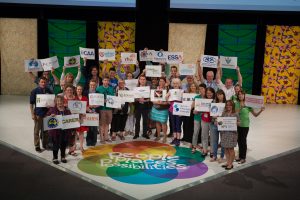


Another lovely piece of writing Gordon … enjoyed it immensely
You are a treasure Gordon.
I would happily consume a whole book of the meanderings of your mind.